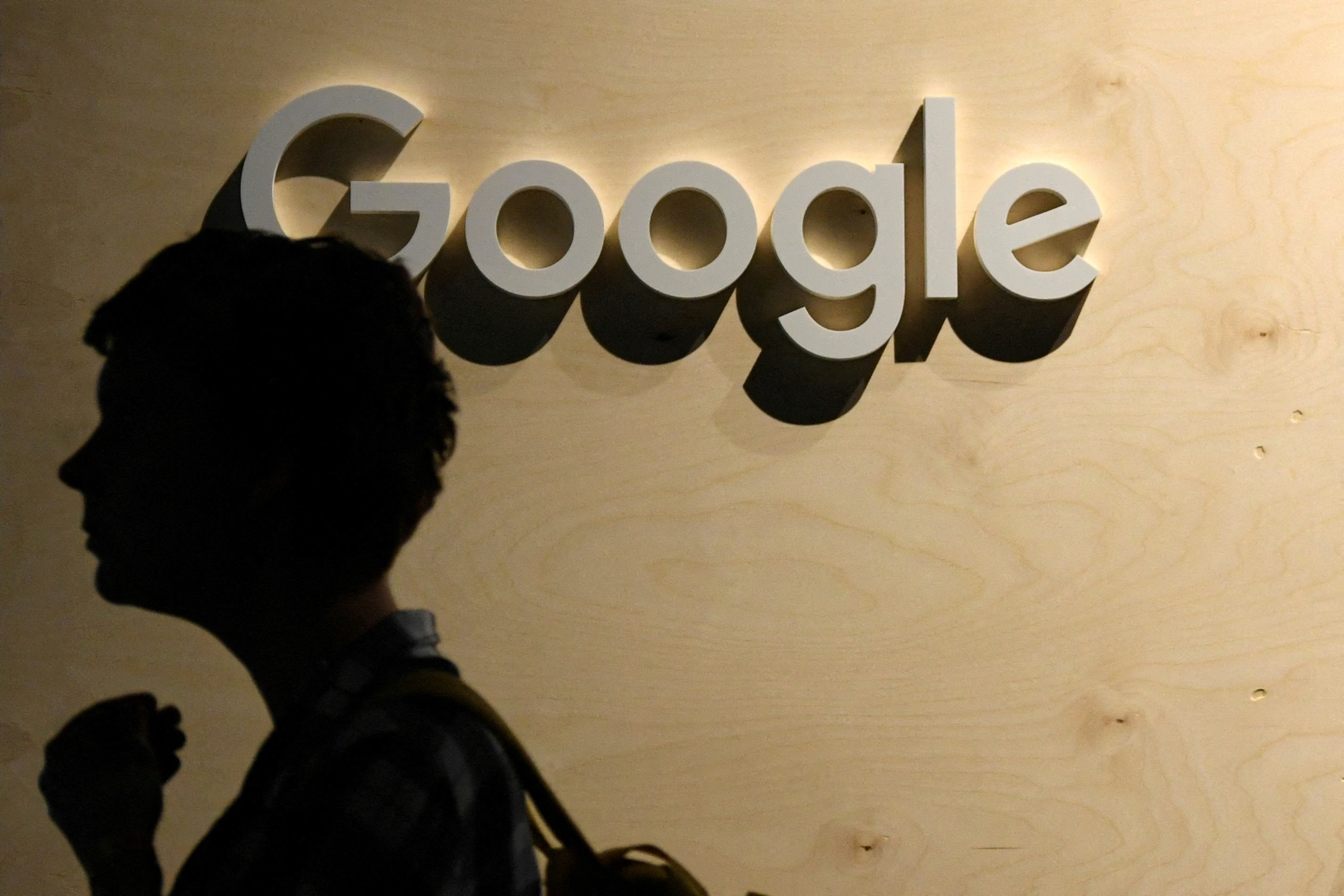o

A woman passes the logo from the web search engine provider Google during the digital society festival 're:publica', at the Arena Berlin in Berlin, Germany June 9, 2022. REUTERS/Annegret Hilse//File Photo Acquire Licensing Rights
If you had artificial intelligence that can process all the material on the web and provide you with a summary whenever you need it, you might never have to read another news piece in your life.
As Google (GOOGL.O) and others experiment with so-called generative AI, which generates new content using historical data, that is the stuff of media moguls' nightmares.
After industry experts questioned the tech giant's future dominance in supplying customers with information in the wake of the rise of OpenAI's question-answering chatbot, ChatGPT, Google started rolling out a new type of search driven by generative AI in May.
The tool, known as Search Generative Experience (SGE), employs artificial intelligence to generate summaries in response to some search queries, depending on whether Google's system thinks the format would be useful. According to Google's description of SGE, the summaries are displayed at the top of the Google search homepage along with buttons to "dig deeper."
Publishers must utilize the same technique that would prohibit them from appearing in Google search results in order to prevent Google's AI from using their content to help build those summaries, thus making them invisible on the internet.
For instance, a search for "Who is Jon Fosse" yields three lines on the author and his work. Jon Fosse just won the Nobel Prize in Literature. Links to Fosse content can be found on Wikipedia, NPR, The New York Times, and other websites via drop-down menus; further links can be found to the right of the synopsis.
According to Google, the AI-generated summaries are combined from a variety of online pages, and the links are intended to serve as a starting point for further research. In order to evolve and improve the product, it characterizes SGE as an opt-in experiment for users. It also takes feedback from news publishers and other sources into account.
Publishers view the new search tool as a signal of the ongoing struggle in their relationship with Google. Over the years, they've grappled to compete against the tech giant for online advertising while simultaneously relying on Google for a significant portion of their search traffic.
The evolving product, currently accessible in the United States, India, and Japan, has raised concerns among publishers. They are grappling with the role they'll play in a world where AI is poised to reshape how users discover and pay for information. These concerns primarily revolve around web traffic, attribution for information appearing in SGE summaries, the accuracy of these summaries, and the need for compensation regarding the content used to train AI tools, which remains a significant point of contention.
Google has stated its commitment to sending valuable traffic to a wide range of content creators, including news publishers, to support a healthy, open web. However, when it comes to compensation, Google acknowledges the need for a better understanding of generative AI application business models and is actively seeking input from publishers and other stakeholders.
Google has also introduced a new tool, Google-Extended, which provides publishers with the option to block their content from being used by Google for AI model training. This option is seen as a positive step by some industry experts, although the question of whether payments will follow remains uncertain.
The introduction of SGE, however, has significant implications for publishers. The new design pushes traditional search results further down the page, potentially reducing traffic to these links by up to 40%. Moreover, there is concern that users might not click on links if the SGE passage provides the necessary information, which could negatively impact publishers' ability to secure advertisers and sustain their business models.
SGE's impact on publishers' organic traffic is a significant concern. Publishers may need to find alternative ways to measure the value of their content, beyond the traditional click-through rate. While SGE may alter the dynamics of user interaction, experts believe that publishers' reputations will remain strong as a result of their links appearing in SGE.
However, publishers express a lack of information and understanding about how to optimize their content for SGE summaries. The new AI section is seen as an enigma, leaving publishers uncertain about how to ensure their inclusion and visibility.
In essence, publishers are concerned that Google is using their content for free to create summaries that users might read instead of clicking on their links, while not providing clear guidelines on how to block content from being crawled for SGE. This creates a sense of unease, with some publishers viewing Google's new search tool as more threatening to their business than illegal content crawling.
While websites have the option to block their content from being used for AI, the data shows that more websites are currently blocking ChatGPT's bot compared to Google-Extended, indicating the growing unease among publishers regarding Google's role in AI-driven content generation.

